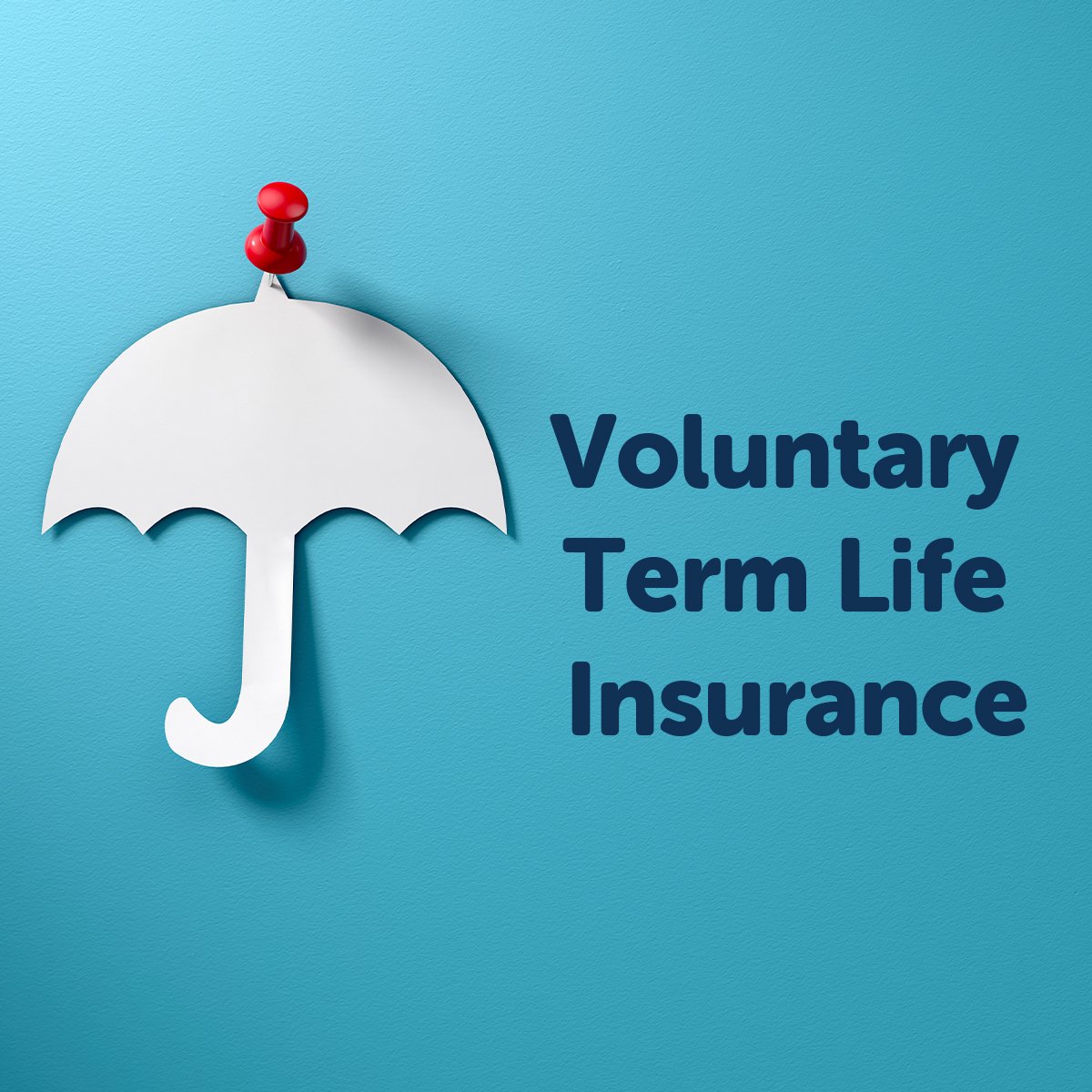Voluntary life insurance offers a unique and valuable form of financial protection, empowering individuals to safeguard their loved ones and secure their financial future. Unlike mandatory life insurance, voluntary life insurance provides employees with the flexibility to choose coverage that meets their specific needs and budget.
This comprehensive guide delves into the intricacies of voluntary life insurance, exploring its benefits, considerations, and various aspects. By providing an objective and educational review, we aim to empower readers with the knowledge they need to make informed decisions about this essential financial tool.
Definition of Voluntary Life Insurance
Voluntary life insurance is a type of life insurance that is not required by law or an employer. It is typically purchased by individuals who want to provide additional financial protection for their loved ones in the event of their death.
Voluntary life insurance offers peace of mind and financial protection for loved ones in the event of an unexpected death. While it may not be as glamorous as Brandon’s captivating performances on “Dancing with the Stars” (Brandon Dances with the Stars: A Journey of Talent and Charisma) , it plays a vital role in safeguarding families from financial hardship.
Voluntary life insurance provides a valuable safety net, ensuring that financial burdens do not overshadow the memories and legacy left behind.
Voluntary life insurance differs from other types of life insurance in that it is not tied to a specific event, such as a mortgage or a job. This means that individuals can purchase voluntary life insurance at any time, regardless of their age or health.
Examples of Voluntary Life Insurance Policies
- Individual life insurance policies
- Group life insurance policies
- Term life insurance policies
- Whole life insurance policies
Benefits of Voluntary Life Insurance
Voluntary life insurance offers a range of advantages that can provide financial security and peace of mind to individuals and their loved ones.
One of the primary benefits of voluntary life insurance is the financial protection it provides to beneficiaries in the event of the policyholder’s death. This financial assistance can help cover expenses such as funeral costs, outstanding debts, and living expenses, easing the financial burden on surviving family members during a difficult time.
Voluntary life insurance is an optional coverage that individuals can purchase to supplement their existing life insurance policies. By choosing from among the top-rated life insurance policies , individuals can enhance their financial protection and ensure that their loved ones are taken care of in the event of their passing.
Voluntary life insurance provides peace of mind and financial security, offering a valuable complement to other insurance policies.
Peace of Mind
Voluntary life insurance can also provide peace of mind to policyholders, knowing that their loved ones will be financially protected in the event of their passing. This can reduce anxiety and uncertainty, allowing individuals to focus on living their lives without the added stress of worrying about the financial well-being of their family.
Case Study
According to a study conducted by the American Council of Life Insurers, individuals with voluntary life insurance are more likely to have financial security and stability. The study found that those with voluntary life insurance were more likely to have a higher net worth and were less likely to experience financial hardship in the event of a job loss or unexpected expenses.
Considerations for Voluntary Life Insurance
When considering voluntary life insurance, several factors should be taken into account to make an informed decision. These include the amount of coverage needed, the cost of premiums, and the terms of the policy.
Voluntary life insurance, as its name suggests, is an optional type of life insurance that individuals can choose to purchase in addition to their employer-provided coverage. It offers additional financial protection for beneficiaries in the event of the insured’s death.
To learn more about the specifics of voluntary life insurance, its benefits, and how it differs from other life insurance options, refer to our comprehensive guide: what is voluntary life insurance. Voluntary life insurance provides peace of mind, knowing that your loved ones will have financial support in the event of your untimely demise.
It’s important to assess the financial needs of your dependents and beneficiaries to determine the appropriate coverage amount. Consider factors such as outstanding debts, mortgage payments, and future expenses like education costs.
Premium Costs, Voluntary life insurance
Premiums for voluntary life insurance vary depending on factors like age, health, and coverage amount. It’s crucial to compare quotes from different insurers to find the most affordable option while ensuring adequate coverage.
Policy Terms
Carefully review the policy terms, including the duration of coverage, any exclusions or limitations, and the process for filing claims. Understanding the terms and conditions will help you make an informed decision and avoid any surprises in the future.
Employer-Sponsored Voluntary Life Insurance
Employer-sponsored voluntary life insurance is a type of life insurance offered by employers as a voluntary benefit to their employees. It provides employees with an opportunity to purchase additional life insurance coverage beyond what is typically offered through their employer’s group life insurance plan.
Voluntary life insurance can be a valuable benefit for employees, as it allows them to customize their life insurance coverage to meet their individual needs and circumstances. Employees can choose the amount of coverage they want, and they can often add riders to their policies to provide additional coverage for specific needs, such as accidental death or dismemberment.
Role of Employers
Employers play an important role in offering and administering voluntary life insurance plans. They typically work with an insurance carrier to select a plan that meets the needs of their employees and to set the rates for coverage. Employers may also contribute to the cost of coverage, which can help to make it more affordable for employees.
Employers are responsible for communicating the voluntary life insurance plan to their employees and for providing them with the necessary information to make an informed decision about whether or not to participate in the plan. Employers must also ensure that the plan is administered in accordance with applicable laws and regulations.
Purchasing Voluntary Life Insurance
Purchasing voluntary life insurance involves selecting an insurance provider, completing an application, and paying premiums. Here’s a step-by-step guide to help you navigate the process:
Step 1: Select an Insurance Provider
Research different insurance providers to compare coverage options, costs, and customer service ratings. Consider factors such as the provider’s financial stability, claim payment history, and reputation.
Step 2: Complete an Application
Once you’ve chosen a provider, complete an application form. This typically includes providing personal information, health history, and beneficiary details. The insurance company may also request a medical exam or other documentation.
Step 3: Pay Premiums
Premiums are the regular payments you make to maintain your life insurance coverage. The amount of your premium will depend on factors such as your age, health, coverage amount, and the insurance provider you choose.
Voluntary life insurance premiums are typically deducted from your paycheck pre-tax. This can result in tax savings, as the premiums reduce your taxable income.
Using Voluntary Life Insurance as a Financial Planning Tool
Voluntary life insurance can be a valuable component of a comprehensive financial plan. It provides a financial safety net for dependents and loved ones in the event of an unexpected death. By integrating voluntary life insurance into their financial strategies, individuals can ensure their financial obligations are met and their families are protected against unforeseen circumstances.
Financial Security
Voluntary life insurance offers a guaranteed death benefit that can provide financial security for dependents. This benefit can be used to cover funeral expenses, outstanding debts, mortgage payments, and other financial obligations. By ensuring that dependents have access to these funds, voluntary life insurance can help prevent financial hardship and maintain their standard of living in the event of a tragedy.
Protection Against Unexpected Events
Life is unpredictable, and unexpected events can strike at any time. Voluntary life insurance provides a financial cushion to help individuals and their families cope with the financial consequences of unexpected events, such as accidents, illnesses, or natural disasters. The death benefit can provide immediate financial assistance to cover medical expenses, lost income, or other expenses that arise due to these unforeseen circumstances.
Supplementing Existing Coverage
Voluntary life insurance can supplement existing life insurance policies, providing additional coverage to meet specific needs or financial goals. For example, individuals may purchase voluntary life insurance to increase their death benefit coverage, cover specific expenses such as funeral costs, or provide financial protection for dependents who are not covered by other policies.
Alternatives to Voluntary Life Insurance
Voluntary life insurance is one option for providing financial protection, but it’s not the only one. Other options include:
- Group life insurance: This type of insurance is typically offered by employers and provides coverage to all employees, regardless of their age or health status. Group life insurance is usually less expensive than voluntary life insurance, but it may also provide less coverage.
- Term life insurance: This type of insurance provides coverage for a specific period of time, such as 10, 20, or 30 years. Term life insurance is typically less expensive than whole life insurance, but it does not provide any cash value or investment component.
- Whole life insurance: This type of insurance provides coverage for the entire life of the insured person. Whole life insurance is more expensive than term life insurance, but it also provides a cash value that can be borrowed against or withdrawn.
When choosing between voluntary life insurance and other alternatives, it’s important to consider factors such as cost, flexibility, and coverage. Voluntary life insurance is typically more expensive than group life insurance or term life insurance, but it offers more flexibility in terms of coverage amounts and beneficiaries. Whole life insurance is the most expensive option, but it also provides the most comprehensive coverage and the potential for cash value growth.
Ultimately, the best option for you will depend on your individual needs and circumstances. If you need affordable coverage for a short period of time, term life insurance may be a good option. If you need more comprehensive coverage or the potential for cash value growth, whole life insurance may be a better choice.
Epilogue
Voluntary life insurance serves as a valuable financial planning tool, offering peace of mind and protection against unexpected events. By understanding its benefits, considerations, and alternatives, individuals can make informed choices that align with their financial goals and provide a safety net for their loved ones.









2 thoughts on “Voluntary Life Insurance: Understanding Its Benefits and Considerations”